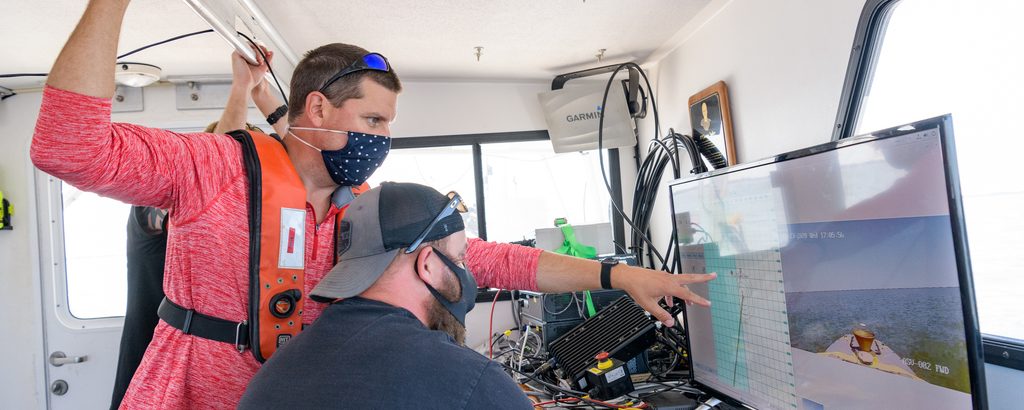
Oceanography Degree Programs

Through research and course work, students learn about remote sensing, the development of microelectrode probes and sensors, cutting-edge data assimilation and visualization techniques and autonomous underwater vehicles.
At the graduate level, we apply an interdisciplinary approach to a variety of research questions.
Located directly on the Delaware River estuary, students have many opportunities to participate in coastal research cruises on board the R/V Hugh R. Sharp, the R/V Joanne Daiber and smaller outboard-driven boats. Oceanography faculty and students conduct diverse research ranging from the nearby estuaries of the Delaware and Chesapeake Rivers to the far reaches of the world, the Arctic Ocean and Antarctica, surface to deep.
We assess nutrient cycling in our adjacent wetlands and waters, and we investigate processes and rates of sediment transport and their effect on the behavior of benthic organisms. We study the biogeochemistry of hydrothermal vents, and using the geochemistry of coastal and deep sea sediments, we reconstruct past climate change. We utilize observational data and numerical models to better understand coastal and open ocean climate interactions.
Students in the Oceanography Program pursue an M.S. degree in Marine Studies with a Concentration in Oceanography or a Ph.D. in Oceanography.
Steps to apply
Step 1
Reach out to CEOE faculty with research interests matching your own to discuss opportunities.
Step 2
Visit the official UD Graduate Admissions homepage.
Step 3
Click the Submit Application link to create an online account. You will receive a temporary account PIN that you can use to create a new password.
Step 4
Start a new application. Fill out your biographical information, select your program of study and follow the on-screen prompts.
Step 5
Once your application is submitted, notify the department graduate program director.
